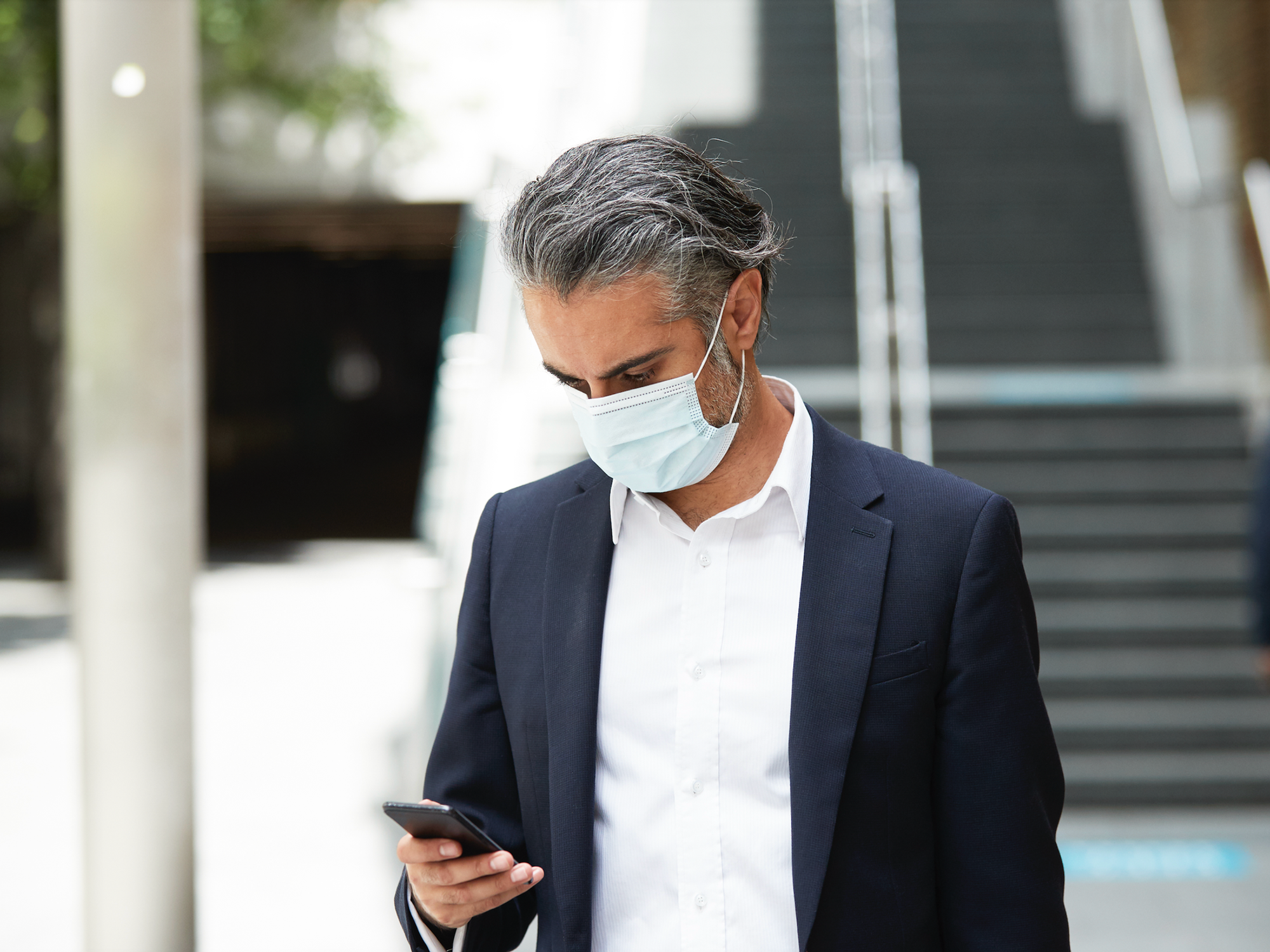Doctor Q&A: What are the signs of dementia in your eyes? Dr Renee Hoenderkamp answers your questions

Celebrity NHS doctor Renée Hoenderkamp addresses GB News members' burning questions
|Doctor Renée Hoenderkamp

In this week's Q&A, celebrity NHS Doctor Renée Hoenderkamp reveals the changes in your eyes that can spell dementia, the best type of cheese to eat if you have high blood pressure and how to alleviate frequent migraines
Don't Miss
Most Read
Latest
The saying "How long is a piece of string?" applies to many questions regarding your health.
It is often hard if not impossible to get to the root cause of what ails the body.
Thankfully, doctors can help you to get as close to the ground truth as possible.
This desire to provide concrete answers to open-ended questions is a theme that runs through this week's Doctor's Q&A with celebrity NHS Doctor Renée Hoenderkamp.
In response to the questions submitted to health@gbnews.uk, Doctor Hoenderkamp provides her expert insight on the changes in your eyes that can spell dementia, the best type of cheese to eat if you have high blood pressure and how to alleviate frequent migraines.
Last week, Doctor Renée Hoenderkamp revealed the best type of vegetable for reducing the risk of cancer, what a salty mouth can signify and the underlying causes of changes to periods.
It's important to remember that the advice given below is general and not individual and you should always seek individualised health care from a doctor.
With those caveats aside, see below Doctor Hoenderkamp's answer's to GB News members' burning questions.
Hey doctor Renee, I'm a big fan of your work. This is a bit left field but can dementia symptoms show up in your eyes? I am in my mid-60s and noticing a change in the size of my pupils. My wife spotted it at first. I did a quick Google and I discovered a link. Are you aware of this association? Sure it's paranoia but would welcome your input. Thank you
Thank you for this interesting question. It is a very difficult to answer for you individually but there's some data to suggest that Alzheimer’s disease (AD) can be reflected in various eye signs before its onset is evident. It is already well established that cognition (memory and processing) is reflected in pupil size as tasks (spans) are completed. These tasks can involve reading or mental arithmetic both frontwards and backwards. The study I found regarding AD was small and involved 24 people with AD and 24 healthy subjects. They were challenged with span tasks and pupil size recorded. The results demonstrated that performing different span tasks results in pupil size changes, generally larger pupils, which were more marked in the patients with AD depending on task and how challenging it was. These results demonstrate that pupil size can mirror cognitive processing in AD and healthy older adults which, to come back to your point, suggests that pupil size can be a marker of cognitive decline in AD and potentially that it may be evident before diagnosis.
There is also data to show changes in the retina morphology that have been found post mortem but these are evident in patients with diagnosed AD and not reflective of what happens prior to the disease onset.
However, before you panic, there are other non-serious causes for pupil changes as we age. Firstly, pupil size decreases with age and this is estimated to be approximately 0.4mm per decade so depending on age, your pupils will likely be smaller than they were. Additionally, the speed with which your pupils change size in relation to surrounding light input also slows which means that the changing size of a pupil in these situations might be more noticeable. There is an interesting article on this attached.
One last point to make is in relation to pupil size difference. You don’t say if it is that one pupil is different to the other but if this is the case the answer is different! Twenty per cent of people will naturally have different-sized pupils and always will have had. For the other 80 per cent, there are several causes and all must be checked out but I didn’t find a link to AD so won’t elaborate other than to attach a useful summary.
I think the answer is, don’t panic. You don’t sound like you have any symptoms of AD but it is always good to be aware and to take mitigating action if needed. By all means, go and get an eye check and see what an optometrist thinks and have a look at MMSE tests to see if you have any signs of AD. If any concerns are raised then a head MRI can be organised by your GP and a referral to neurology if warranted. As a precautionary approach, look at your diet and lifestyle and try and incorporate the changes in previous articles on here for all-round health and to minimise the Alzheimer’s risk and inflammation. Make sure you are keeping your brain active and engaged and try to learn new skills; a musical instrument, a language, puzzles, crosswords or chess.
I hope that this helps and that you can put your mind at rest.
Hey doc, what is the best type of cheese to eat if you have high blood pressure? I am watching my reading closely and would hate to give up cheese altogether. Any input would be welcomed. Thank you
I do love food questions. So to explain to those who don’t know, people are often advised to stop eating cheese when they have hypertension (HTN) and this is due to the often high salt content of cheese because salt is discouraged in HTN as it causes water retention in the body which pushes blood pressure higher. The daily recommended dose of salt is six grams (a teaspoon of cooking salt) or 2.5g or less of sodium.
However, whilst cheese can be high in salt, its not all bad! So don’t despair, there are cheeses you can eat and these include mozzarella, ricotta, swiss cheese and mascarpone. You can of course also get other cheeses that are low in sodium but beware of the ultra-processing that may be part of that process. So I would say go for taste and just less than usual.
Then there is of course the rest of your diet and keeping salt low. I find that cooking from home and using natural flavours such as onion, garlic and spices can mean that you don’t need any salt in your diet, you then have a good non-processed meal that you can batch freeze for the future and then a little cheese at the end can be your salt, because we all need some salt.
If you are or can achieve a healthy body weight (BMI under 25) and increase aerobic exercise (exercise that makes you breathless) this can bring blood pressure back into normal range. The power of weight and activity is quite staggering for blood pressure. Even a brisk walk a day can make a difference.
Hopefully, that’s helpful and good luck!
Hey doctor Renee, do you advice for frequent migraines? I usually take Migraleve and hope for the best but it doesn't feel like a long-term solution. Best
Recurrent migraines can be absolutely debilitating and be a major impairment to normal life. If you are only getting a migraine every few months, then it may be better for you to try and minimise attacks by identifying and avoiding triggers, such as certain foods, stress, smells, noise, lack of sleep, alcohol, dehydration rather than add more medication, but that choice is always a personal one and it depends on frequency, duration and how debilitating they are for you.
If your migraines are worsening, changing in nature or coming more frequently then it is important to see your doctor for a full re-examination to see what, if anything, has changed.
If nothing has changed and your migraines are causing enough disruption that you would like to look at other treatments aimed at keeping them away rather than treating them when they occur, there are options. Various medications are available and choosing the right one for you is essential. It is also important to consider any other medical conditions and drugs unique to you. A new treatment can only be assessed after a two to three-month trial with a full trial possibly taking up to six months. Your GP can advise and initiate one of these medications which include;
- Propranolol – a blood pressure tablet
- Topiramate – an anti-epileptic medication (can’t be used in women of childbearing age)
- Amitriptyline - an old-style anti-depressant
If you are not at the point where these are necessary, it is also important to consider other causes such as medication overuse headache (MOH), where painkillers are actually causing the headache. These can occur if you use paracetamol, ibuprofen or codeine-based medications (and triptans for migraine) for more than 11-15 days a month, even if you are using them for other pain, e.g. back pain. It can take six to eight weeks to get rid of these and you would need no use at all in that time. If the resulting withdrawal headache is too bad, amitriptyline can help overcome it.
In the meantime, for your existing migraines, if not MOH, the standard treatment approach includes simple pain killers such as paracetamol, ibuprofen, aspirin, plus a triptan and, if you get nausea, try anti-nausea medication.
Migraleve is a triptan called sumatriptan and the important thing to know is that there are several triptans (sumatriptan, rizatriptan, zolmitriptan, frovatriptan, almotriptan, naratriptan and eletriptan) and they all act slightly different for each person, in other words, there is no class effect. So if you find that Migraleve isn’t working, or not so well, see your GP and they can try a different triptan which may well work.
It is always worth mentioning that women of childbearing age should always mention migraines when consulting about birth control because some migraines make the combined pill an unacceptable medication to use due to an increased risk of blood clots and stroke. The combined pill can also be a migraine trigger, as can hormones which is why being a woman makes prescribing different than for men.
I hope this whistle-stop explanation helps.










